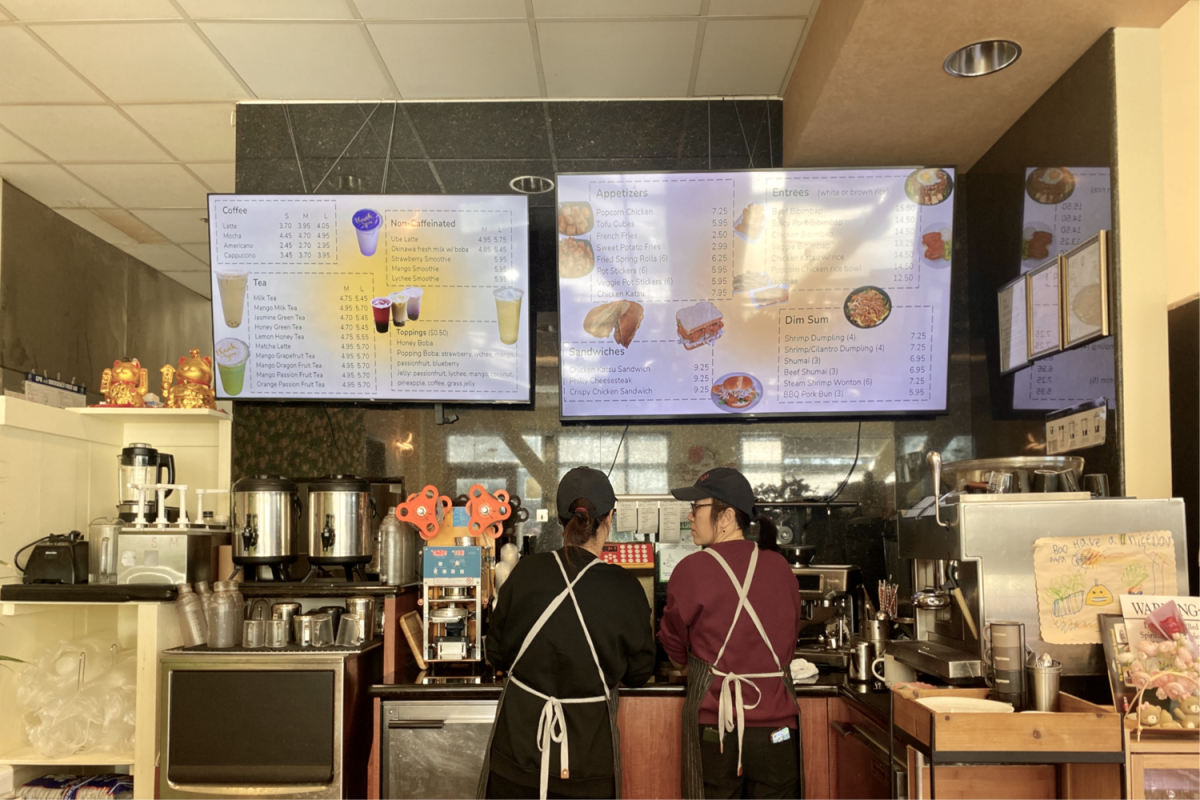With rising costs and changing operations, small businesses are starting to feel the effect of President Donald Trump’s new tariffs.
Trump announced he would implement an additional 25% tariff on Mexico and Canada and a new 10% tariff on China on Feb. 1. However, Trump’s implementation of the tariffs for Mexico and Canada was delayed by 30 days. On Feb. 4, Trump’s new tariff on China increased the tariff to 35%.
According to the White House, Trump is raising tariffs to stop illegal immigration and poisonous drugs like fentanyl from entering the country. However, business owners like Ben Kong, the manager and owner of SweetU Cafe & Catering, worry that costs will increase.
“We get the food from local groceries like Costco. Costs have increased, even if not drastically. Fruits have become more expensive,” Kong said.
According to Kong, the cafe imports its to-go boxes from China. With packaging and produce becoming more expensive, the total cost of a menu item will also increase.
“Packages imported from China increased to about 20 to 25% this year,” Kong said.
With rising costs, Kong plans to raise the price of all food and drinks on his menu. According to Migration Dialogue, a news blog by UC Davis, 20% of strawberries and 60% of blueberries are imported.
“We won’t increase the prices by that much. We will try to see how much it affects us and then slowly increase the prices,” Kong said.
Frequent customers like Emi Ota, a junior at Carlmont High School, say the cafe remains a popular spot for locals despite price adjustments.
“I go there almost every week. A lot of students nearby still go to the cafe often. However, they still might buy many products since the cafe is close by and the food is high quality,” Ota said.
According to John Rowe, an Introduction to Business and Marketing teacher at Carlmont, tariffs impact consumers who buy the products most. In contrast, tariffs can give businesses an advantage.
“I think it’s gonna be hard for companies selling imported goods that now have a tariff. But that can help the United States. The United States has products that don’t have tariffs on them, so now companies can sell goods priced more competitively than lower-cost goods from foreign countries,” Rowe said.
According to Belmont resident Keri Schneider, business owners may need new strategies to promote customer satisfaction and get better supplier deals.
“A business owner can go directly to the vendor and see if they can negotiate,” Schneider said.
With the restaurants increasing prices and produce becoming more expensive, Schneider has to adjust her daily spending.
“People must get creative and try not to spend or waste too much money. Do some research, find other options, and see if it is worth paying the tariff, or if it is worth finding another vendor, where someone else can offer the same product for a cheaper price,” Schneider said.












